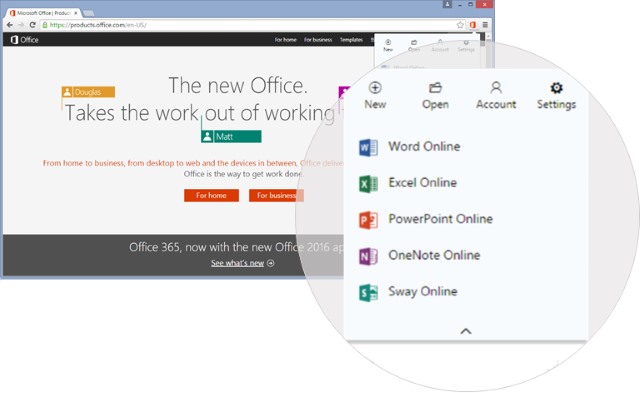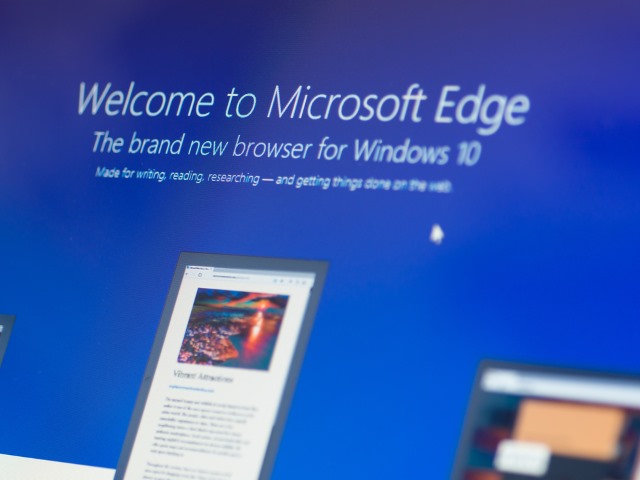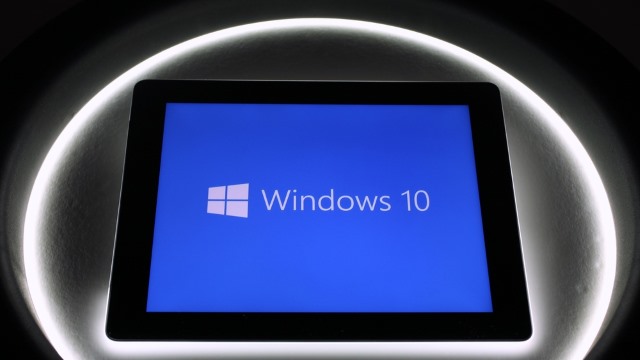
Vivaldi moves to beta, offers power users a uniquely customizable browser
Vivaldi Technologies has unveiled the first beta of its new web browser for power users with the release of Vivaldi Beta. The aim of Vivaldi is to give users unparalleled control over their web browsing experience, and has been developed by a team led by Opera’s co-founder, Jon S von Tetzchner.
The alpha releases have been downloaded by more than two million early adopters, but this first beta release is aimed at general users, and among its new features are support for Chrome extensions and web panels.

Google says Chrome OS is going nowhere
Google has scotched rumors that Chrome OS could be ditched. There had already been some doubts about the truth behind suggestions that Android and Chrome OS could be on the verge of merging. Google has already gone to some lengths to stress how committed it is to Chrome OS, and today goes a step further in stating in very plain language:
"Chrome OS is here to stay".
Firefox 42 tightens privacy with Tracking Protection, revamps Control Center
Mozilla has made Firefox 42 FINAL available for download ahead of its official release, with Firefox 42 for Android due to follow later this week.
Both builds implement a new Tracking Protection feature to tighten web privacy, while the desktop version adds a new Control Center. Android users also gain a number of new features, including a login manager and the ability to queue up links from other apps.

Highlight (and share) the web with Highly for Chrome
Web highlighters can be a handy addition to bookmarks, highlighting blocks of web text so they’re easier to find later.
Highly is a free Chrome extension which takes the process to the next level, by making it easy for users to share their highlights with others.

Skype comes to Office Online and Office comes to Chrome
Microsoft is promoting Skype more than ever before. Not content with desktop and mobile apps, now the company is bringing the voice and video messaging tool to its office suite. Starting with Office Online integration Skype messaging is now available in Word, Excel, PowerPoint, and OneNote Online, as well as Outlook.com.
This is a continuation of Microsoft's increased focus on the cloud, and a recognition of the importance of communication for collaborative projects. There are times when simply being able to work on the same document with colleagues is not going to be enough, and this is where Skype integration comes into play.

Two become one -- Google to 'merge' Android and Chrome OS
Just as Microsoft is trying to streamline its various operating systems with the approach it has taken with Windows 10, so Google appear to have similar plans. The Wall Street Journal reports that plans are well under way to merge Android and Chrome OS.
Work has been going on for two years, and an early build of the hybrid operating system is expected to see the light of day next year. A full release is planned for 2017. While described as a merger of OSes, the report suggests that Google is really looking to expand Android so that it can run on laptops. Chrome OS may well live on, but the same cannot be said of Chromebooks.

Opera 33 arrives with new branding
Opera FINAL 33 has shipped, complete with its brand new identity.
This isn’t just about a new icon. No, really. It’s three: a wireframe icon for the developer build, a partially painted version for betas, and a full 3D O for the final release, in Opera’s signature red.

Mozilla may drop FTP support from Firefox [Confirmed]
When your product has millions of users, any change that you make is guaranteed to impact a significant number of people. So, when you decide the time has come to remove a traditional feature, you are sure to encounter some resistance. Question is, where do you go from there?
Mozilla is in this exact situation. The organization apparently wants to drop support for FTP in a future version of its Firefox browser. And, even though most folks are likely not making use of it, there are still hundreds of thousands if not millions of other people who will be affected.

Google just made Chrome for iOS much better -- Split View and Autofill are here
As soon as I come home every day, the first thing I do is grab my iPad. My iPhone gets connected to the charger and then it is tablet time. While I use a lot of apps, the one I use most is Safari. Yes, on the device with the best apps, I spend a lot of time surfing the web.
While I am totally satisfied with Safari, I am open to trying an alternative. On both Ubuntu and Windows 10 I use Chrome, so maybe I should use Google's browser on my iPad too. Well, today, the search giant makes its browser much more attractive to iOS users. The iPad version now offers Split View for compatible devices, while all iOS devices gain Autofill.

Microsoft Edge might not get extensions until Windows 10 Redstone in 2016
Since the launch of Windows 10, anyone who has joined the Insider program has been treated to a number of updates in the form of preview builds -- particularly on the Fast ring. Regular users have not been so lucky, but Microsoft's Windows 10 roadmap includes a number of Service Pack-style updates on the horizon.
It is through these bigger updates that Microsoft is expected to deliver the long-promised extensions to its Edge. But anyone who is looking to extend the capabilities of Microsoft's browser could have something of a wait on their hands. The next update to Windows 10 -- known as Threshold 2 -- won't bring extensions. In fact, it won’t be until the Windows 10 Redstone update later in 2016 that Edge gets the feature everyone is waiting for. But will it be too late to claw back users from Chrome and Firefox?

Copyfish: free OCR and translation for Chrome
Copyfish is a free Chrome extension for extracting and translating text from images, videos, PDFs and more.
The package couldn’t be any easier to use. Click the Copyfish icon on your address bar, click and drag to draw a rectangle around your text, and wait: the OCR result is displayed in a few seconds, along with a translated version.

Windows 10 users ignore Microsoft Edge for a reason
Microsoft should not be surprised to see Windows 10 users ignoring its Edge browser, or other stock programs for that matter. People will do that, especially when there is an alternative that better suits their needs. But, as a new leaked build shows, Microsoft does not want to give up the fight just yet.
Windows 10 users who want to switch away Microsoft Edge (or some of the stock apps) might soon get a prompt, asking them to give the program a chance while listing some of its main features. But, at this point, this feels like a terrible idea, one that will surely annoy users and make them ignore Microsoft's efforts in the future, no matter how good its software might be.

Mozilla to drop NPAPI plugins from Firefox
Mozilla will kill "most" NPAPI plugins in Firefox almost two years after Google took the same action with Chrome. Back in September 2014, Google announced that NPAPI support would be removed starting in January 2015. Mozilla is now playing catch-up, and plans to end NPAPI support by the end of 2016.
When Google announced its decision, speed, stability, and security were cited as reasons for ditching plugins, and Mozilla is taking much the same line. The company also points out that many features and functions that only used to be possible through the use of NPAPI plugins can now be achieved through native web APIs. But what is this going to mean for users?

Windows 10 sees people ditching IE -- but Chrome wins out, not Edge
Launching a new web browser was always going to be a risk. Microsoft used Windows 10 as a launch pad for Edge, shedding the shackles of Internet Explorer in a bid to take on the likes of Chrome and Firefox.
Sadly for Microsoft, new figures show that Edge is failing to make inroads into Google's and Mozilla's market shares. Analysis performed by Quantcast shows that in the US just 12 percent of Windows 10 users are using Edge, while Chrome is sitting pretty with a greater than 70 percent share.

Developers can now respond to reviews in the Chrome Web Store
Reviews can be an important factor in deciding which app or extension to install. The idea of user reviews is something that has been adopted by Apple in its App Store, and is also used by Microsoft and in Google Play. The Chrome Web Store also features reviews, and a new feature has just been added that could make them more useful than ever -- the ability for developers to respond.
This is an important change as it gives developers the right of reply. When reading a review written by someone you almost certainly don't know, it can be hard to tell if their opinion should be trusted. Did they rate the app or extension poorly because there is a problem with it, or did they not understand how to do something. Giving developers the chance to reply to reviews allows for greater transparency and allows others to see that the developer in question is reading feedback -- but it may not all be good news.
